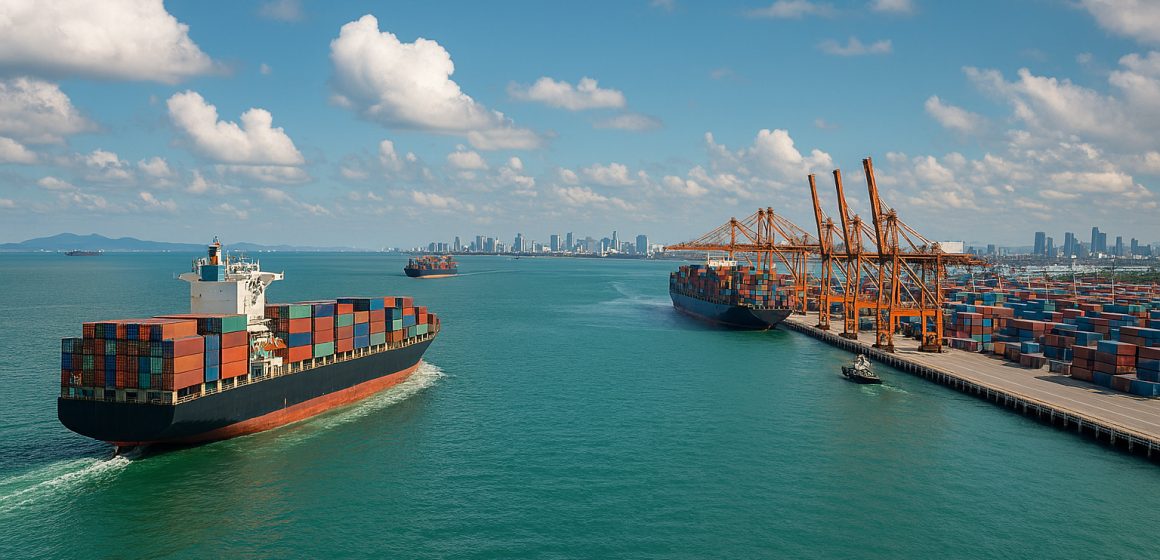With the passage of the Coastal Shipping Bill, India has cleared all key maritime reforms needed to revitalise its ports and shipping sector, marking a decisive step toward reclaiming its historical stature in global trade.
The 2025 Monsoon Session of Parliament will go down as the most memorable for India’s maritime sector. Across two consecutive days, lawmakers approved three long-pending legislations critical to the industry, including the Coastal Shipping Bill, 2025.
As reported earlier, the Merchant Shipping Bill, 2025, and the Carriage of Goods by Sea Bill, 2025, were passed on August 6. With the addition of the Coastal Shipping Bill on Thursday, the Ministry of Ports, Shipping & Waterways (MoPSW) has now secured legislative approval for all three pillars of India’s maritime reform agenda.
At the start of the session, on July 21, Parliament also passed the Bills of Lading Bill, 2025, establishing a simplified and internationally harmonised legal framework for maritime documentation.
Welcoming these developments, Jagannarayan Padmanabhan, Senior Director & Global Head of Consulting at the advisory Crisil Intelligence, told INFRASTRUCTURE TODAY, “The passage of all four key maritime legislations—including the recently approved Coastal Shipping Bill, 2025—marks a significant step in strengthening India’s maritime regulatory framework.”
Pragya Priyadarshini, Managing Director at the New Delhi-based consultancy Primus Partners, noted, “Together, these reforms promise smoother trade, lower logistics costs, job creation, and a cleaner, more competitive maritime ecosystem. They position India to emerge as a modern, efficient, and globally competitive maritime hub.”
The experts agree that the reforms would go a long way to streamline and modernise laws governing shipping, navigation, ports, and coastal trade.
Unlocking India’s Strategic Coastline
Originally passed by the Lok Sabha on April 3, the Coastal Shipping Bill seeks to unlock the vast potential of India’s 11,098 km-long strategic coastline, which spans nine states and four union territories.
The legislation replaces Part XIV of the Merchant Shipping Act, 1958, with a modern, globally aligned framework that simplifies and strengthens coastal shipping regulations in line with international cabotage norms.
Proposing the bill for adoption, Sarbananda Sonowal, Union Minister of Ports, Shipping & Waterways, stated that the legislation is central to India’s ambition of increasing its coastal cargo share to 230 million metric tonnes by 2030, while advancing the maritime sector’s contribution to the national agenda of Aatmanirbhar and Viksit Bharat.
“This is not merely a legal reform but a strategic enabler of economic growth, employment, and logistics efficiency,” Sonowal said.
Strengthening Domestic Cargo Movement
Consisting of six chapters and 42 clauses, the bill introduces a streamlined licensing system for coastal shipping and establishes a regulatory framework for foreign vessels operating in domestic trade. It also mandates the formulation of a National Coastal and Inland Shipping Strategic Plan to guide future infrastructure development and policy direction.
A key provision is the creation of a national coastal shipping database, offering real-time access to authentic and regularly updated data. This will help investors track government priorities and development plans, fostering transparency and confidence in the sector.
“This bill aims to reduce India’s dependence on foreign vessels, thereby preventing the outflow of foreign exchange. In doing so, it will catalyse local economic development, generate employment opportunities across coastal regions, and strengthen ease of doing business for Indian shipping operators,” stated Sonowal.
Once implemented, the legislation is expected to significantly enhance supply-chain security by increasing the number of India-registered ships engaged in domestic cargo movement. By promoting the use of such vessels for intra-national trade, the bill aims to reduce reliance on foreign-flagged ships, bolster strategic autonomy, and support the growth of India’s shipping and shipbuilding ecosystem.
Taking a holistic view of the reforms, Crisil Intelligence’s Padmanabhan added, “By replacing outdated statutes with contemporary provisions, the sector is now better positioned to support efficient cargo movement, safer maritime operations, and improved coordination across stakeholders.”
The updated legal architecture will lay the groundwork for sustainable growth, multimodal integration, and ease of doing business in the maritime domain, thereby supporting national and international trade in the long term.
Manish Pant


